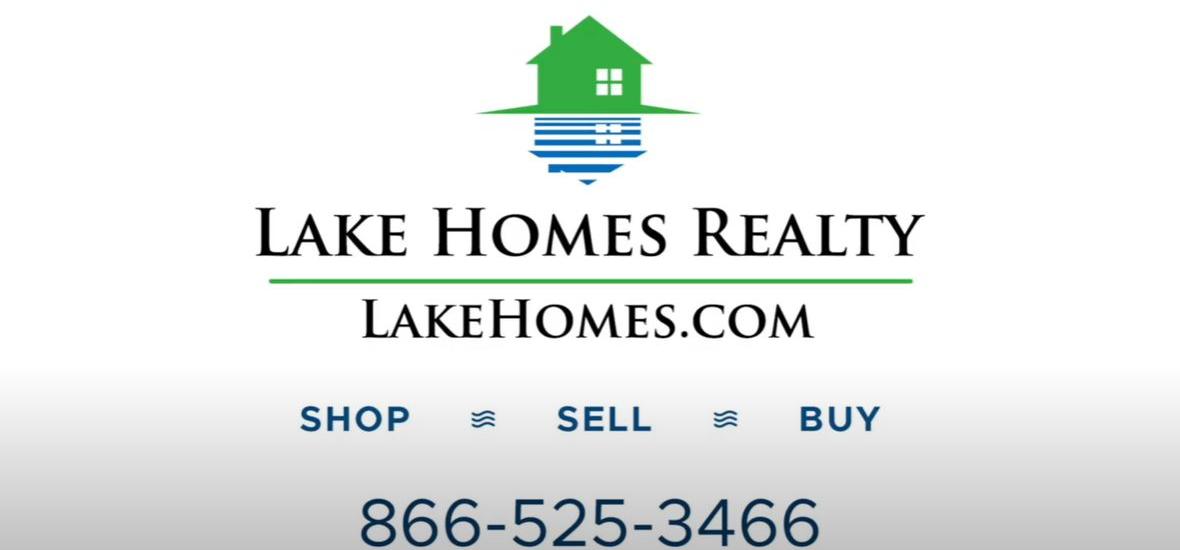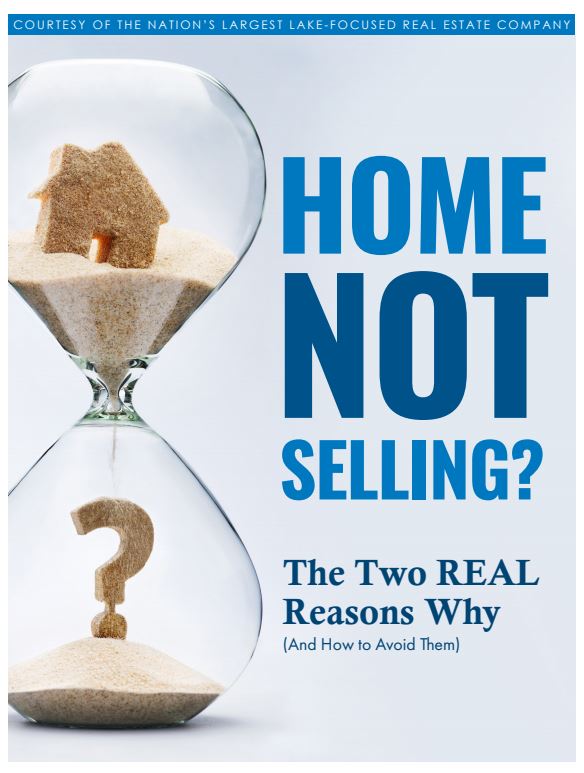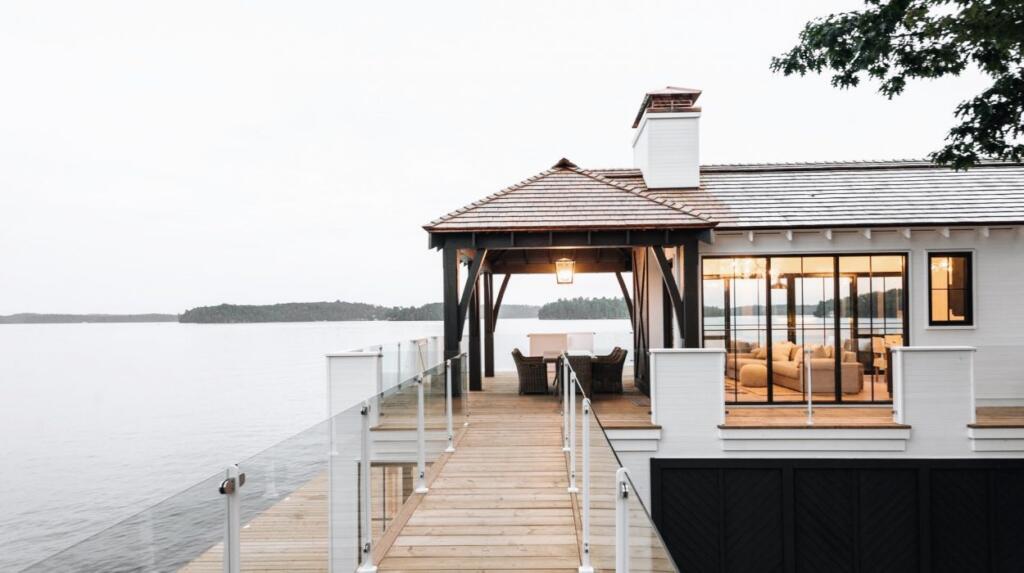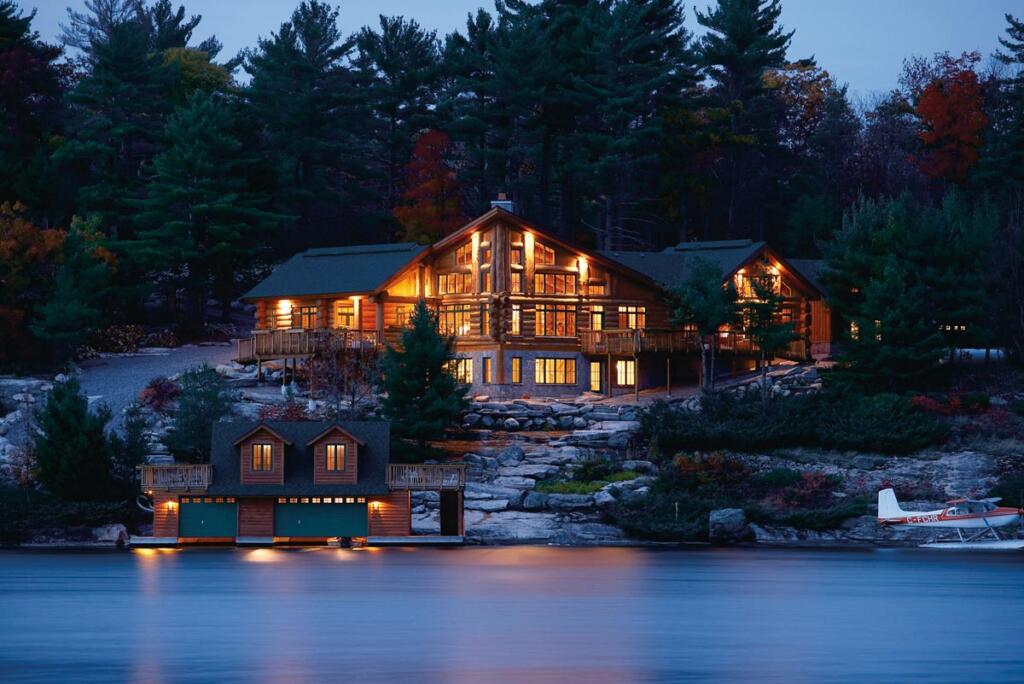Because Lake Homes Realty has an exceptionally strong online component, we’re often misidentified as an online brokerage. In reality, Lake Homes Realty is a new breed of tech-enabled services companies that fuses the power and convenience of the web with the personal service of local lake market experts.
It’s true that our website, LakeHomes.com, is the best online tool for searching lake homes and land and for connecting lake real estate buyers and sellers.
But of the many features our site offers, homeowners will not find among them an option for selling their properties directly to us.
iBuyer programs have recently grown in popularity, offered today on such platforms as Zillow, Redfin and Opendoor.
However, is selling to these companies, or iBuyers, really a practical option when it comes to lake properties?
To know for sure, it’s best to familiarize yourself with the iBuying/Selling process and consider what this new transaction model could mean for lake real estate.
What are iBuyers?
iBuyers are companies that provide instant offers for property listings — sight unseen — even before they are listed.
By filling out iBuyers’ online questionnaires, homeowners often use such platforms to get an idea about their properties’ values before entering a contract with an agent.
Typically, iBuyer offers are based off what home valuation models estimate the properties to be worth, taking into account the properties’ current fair market values.
These companies pride themselves on quick closings and fast resell times, earning their money not on the profits made from resales, but on the fees associated with using their instant offer platforms.
According to one Forbes article, iBuyer fees can quickly add up to as much as 10% of a listing’s fair market value, compared to traditional real estate commission fees which total between 5 and 6 percent, on average.
Data on the effectiveness of selling to iBuyers is limited; however, the same Forbes article reported 9 out of 10 homeowners who initially considered iBuyer offers ultimately chose to work with a live real estate agent.
iBuyer ROI
iBuyer offers are deeply rooted in home valuation tool estimates, so it’s important to point out these models do not play well with unique properties like lake homes.
Tools like the Zestimate (LINK) are great for cookie cutter properties, like those found in subdivisions, but when it comes to properties with unusual property shapes, lake view or lake front, home values can get a little more tricky.
Particularly when it comes to niche properties, list prices should be determined with the help of a local market expert who is intimately familiar with your lake.
However, to illustrate how selling to an iBuyer can effect your return on investment when listing your lake home, pretend you have foregone the help of a lake real estate agent.
Say you originally purchased your lake home for $500,000. In this scenario, you put down a traditional 20 percent down payment, meaning on the day you became its owner, you had roughly $100,000 in home equity.
When you decided to list your home, it had not appreciated much in the short amount of time you’d owned it, and therefore its fair market value, according to your iBuyer’s estimate, remained close to the $500,000 for which you bought it.
Once listed, an iBuyer offered you $475,000 for your lake home, a loss of about $25,000. Still, the offer appeared attractive, and was close to what your own home valuation estimate research had shown, so you accepted and agreed to pay a 5 percent commission to process the transaction.
This totaled nearly $24,000.
Combined with the $25,000 lost on the fair market value, by working with an iBuyer, you ultimately ended up losing $48,750 of the equity you started with, though your home closed quickly.
Lake Real Estate Agent ROI
Now, consider this: Originally purchased for 500,000, your lake home is located right on the water, has a newly finished back patio and has a custom $30,000 boat dock.
Shortly after closing, the lake’s managing entity passed regulations restricting the construction of any more docks along your shoreline.
As a result, your lake home instantly gained $10,000 more in value, without appreciating naturally over time.
Because home valuation models are based on tax records, comparable home sales and user-generated data, the model your iBuyer used could not factor in the above variables, thus offering you the $475,000.
Out of curiosity, you contact a Realtor, who happens to live on the same lake himself. As an area local, he understood the significance of your home’s dock and suggests you list at $510,000.
After several months, you accept an offer from a live buyer, for $500,000.
After paying your agent’s 6 percent commission, you walk away from the table with $60,000 of your home equity as opposed to just over $51,000 if you had sold to the iBuyer.
A difference of less than $10,000 may not seem like much to some, but for those homeowners who have very little equity – or those who paid cash for their lake homes – this amount can be rather significant.
What This Means for Lake Real Estate
Traditionally, lake listings stay on the market for longer periods of time than off-lake properties, often because these listings serve as second or vacation homes. Therefore, owners are rarely in a hurry to sell.
And, going into the original purchase of their home, they likely understood that as a discretionary property, their lake home would not be as easily liquidated.
Still, we can see how the time element of iSelling can be attractive.
Ultimately though, when dealing with properties whose values depend on more than public records, it’s best to consult a real estate professional who has experience working similar listings, even if only for a second opinion.
Especially if there is no immediate need to sell, take your time, and exhaust all your options before jumping at the first offer that’s brought to the table.
Your lake home is unique to your local market. Be sure you are getting the most from your sale by speaking to your local Lake Homes Realty expert.
It’s possible your home is worth more than you think.







 DOWNLOAD NOW
DOWNLOAD NOW





